
Bullying remains a critical issue in educational institutions worldwide, posing significant challenges to students’ well-being and academic success. The KiVa Antibullying Program, developed in Finland, has gained international recognition for its evidence-based approach and comprehensive strategies. The key insights from the seminar were featured by Ms. Anna Murgo, Deputy International Program Manager of KiVa, and Mr. Wichian Chaiyabang, Headmaster of Lamplaimat Pattana School in Thailand. Their expertise and experiences shed light on the importance of addressing bullying, the effectiveness of the KiVa program, and practical approaches to creating safe and supportive learning environments.
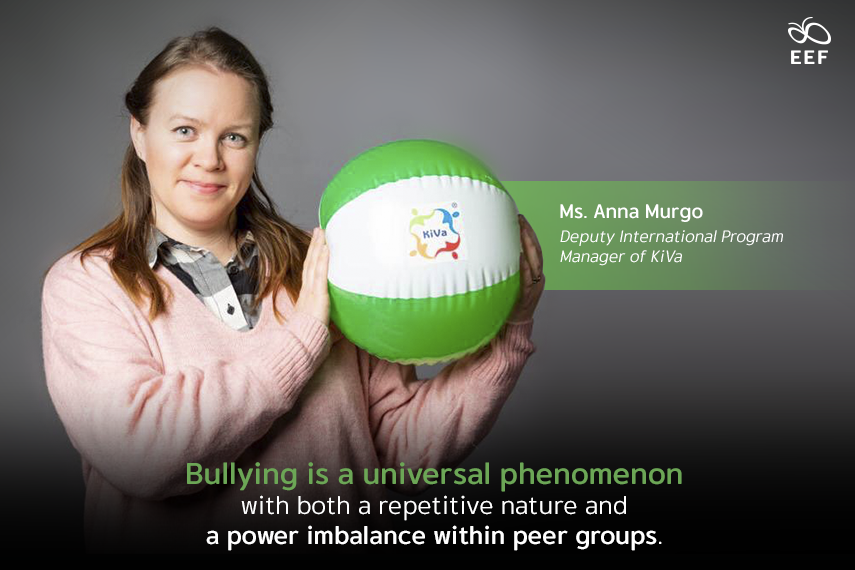
The Prevalence of Bullying:
Ms. Anna Murgo highlights that bullying is a universal phenomenon with both a repetitive nature and a power imbalance within peer groups. A survey conducted in Thailand revealed alarming statistics, indicating that economically disadvantaged children are particularly vulnerable, with a prevalence rate of 7%. Bullying’s adverse effects include increased stress, reluctance to attend school, and even depression among victims. She emphasized that addressing bullying and fostering safe learning environments required urgent actions.
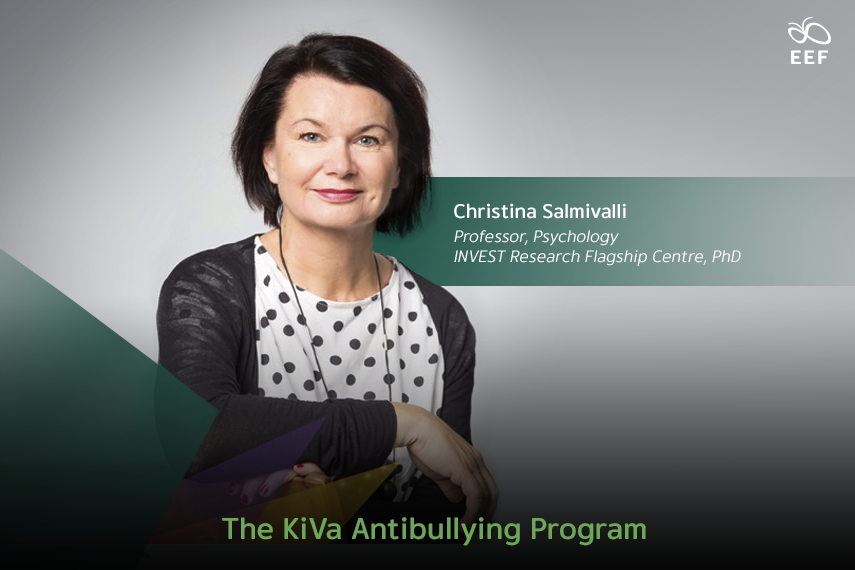
The KiVa Antibullying Program:
The KiVa program, developed by Professor Christina Salmivalli, focuses on addressing bullying as a group phenomenon rather than solely on the bullies and the victims. Research conducted in Finnish classrooms revealed various roles in bullying, including bullies, victims, assistants to bullies, reinforcers, bystanders, and defenders. The program aims to foster empathy, raise awareness of the group’s role in bullying, and provide safe strategies to support victims.

Successful Implementation of KiVa:
The Finnish government recognized the need for a comprehensive solution to bullying and mandated the creation of the KiVa program. Since its implementation in 2009, nearly 90% of Finnish schools have adopted the program, significantly improving students’ well-being, school satisfaction, and learning motivation. The program’s success can be attributed to its evidence-based approach, whole-school implementation, adaptability to different cultural contexts, and ongoing research conducted at the University of Turku.
Implementation Steps and Methodology:
For the successful implementation of the KiVa program, identifying committed licensed partners is crucial. The licensed partners should possess the necessary expertise, financial resources, and a network of schools. After translating and localizing materials, schools undergo KiVa training, ensuring staff members understand the program and their roles. Continuous support is provided by certified trainers and licensed partners throughout the school year, helping schools effectively implement the program and address any challenges.
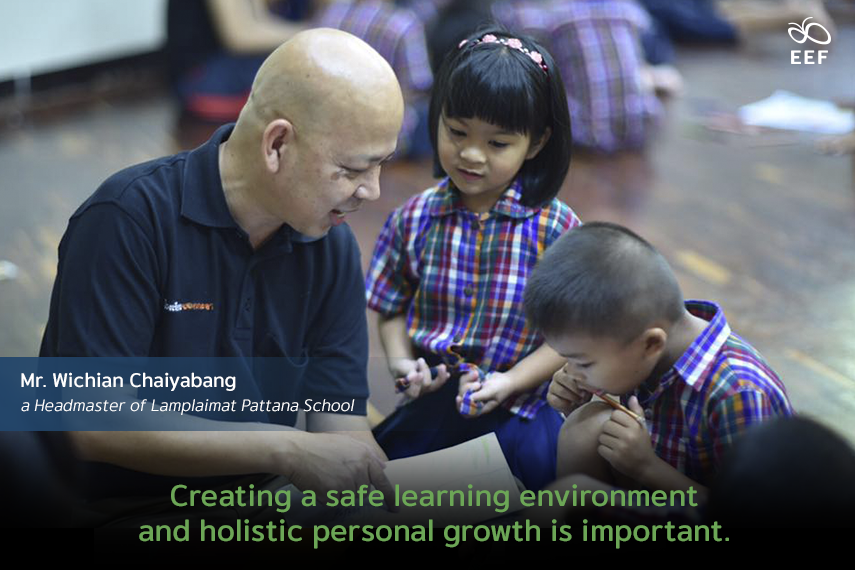
Promoting a Positive School Environment:
Mr. Wichian Chaiyabang emphasized the importance of creating a safe learning environment and holistic personal growth. He highlighted the integration of anti bullying concepts throughout the school day and the promotion of positive values. By combining observational or social learning with curriculum-based learning, educational institutions can create an environment that supports students’ holistic development and positive values.
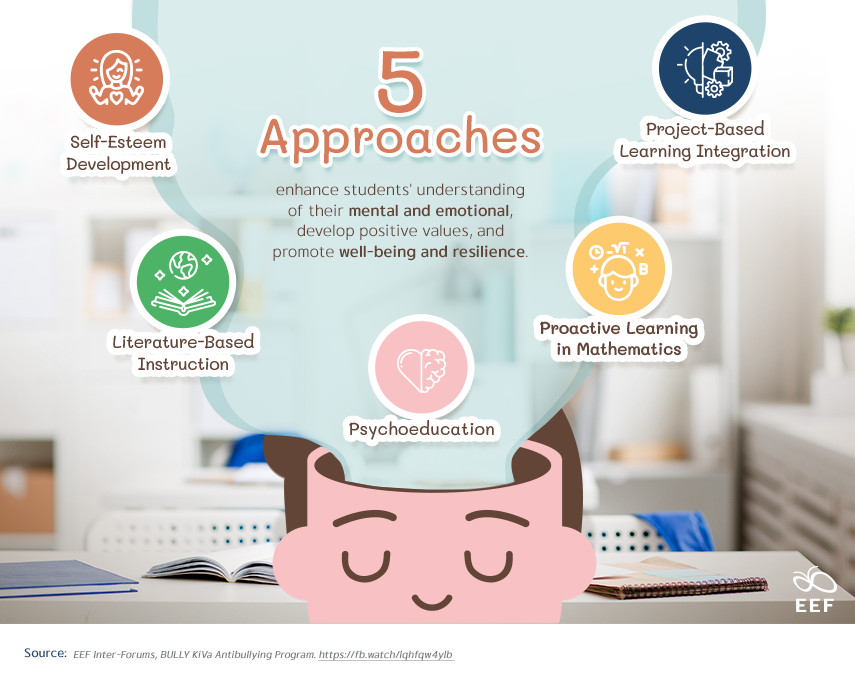
Active Learning Innovations:
Active learning innovations encompass various approaches to education including self-esteem development, psychoeducation, project-based learning integration, literature-based instruction, and proactive learning in mathematics. These approaches enhance students’ understanding of their mental and emotional processes, develop positive values, and promote well-being and resilience.
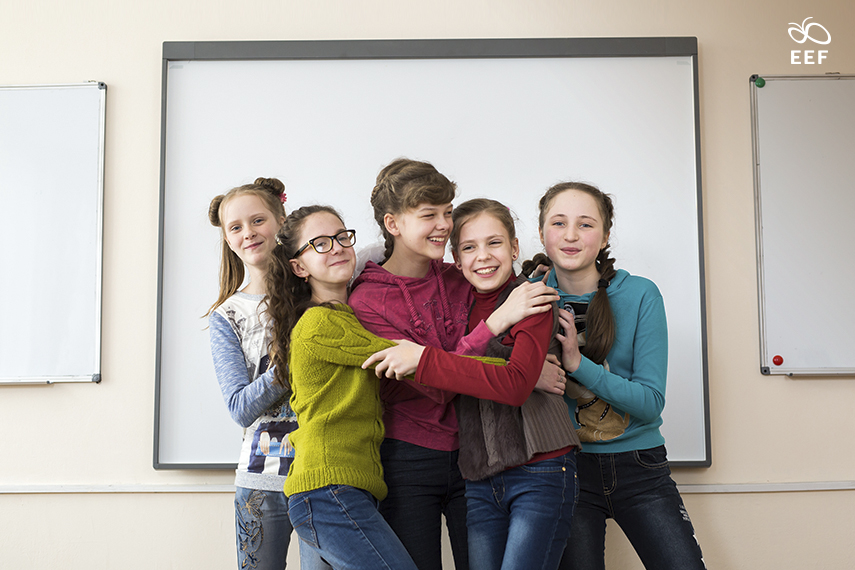
In conclusion, implementing the KiVa Antibullying Program has proven to be successful in Finland. Safe and supportive learning environments can be created by addressing bullying as a group phenomenon, promoting empathy and awareness, and providing practical strategies. The whole-school approach, the role of educators, and the collaboration among schools, parents, and students are the key success factors that effectively prevent and address bullying. By implementing evidence-based programs like KiVa, we can work together to foster a safer and more inclusive educational environment for all students.
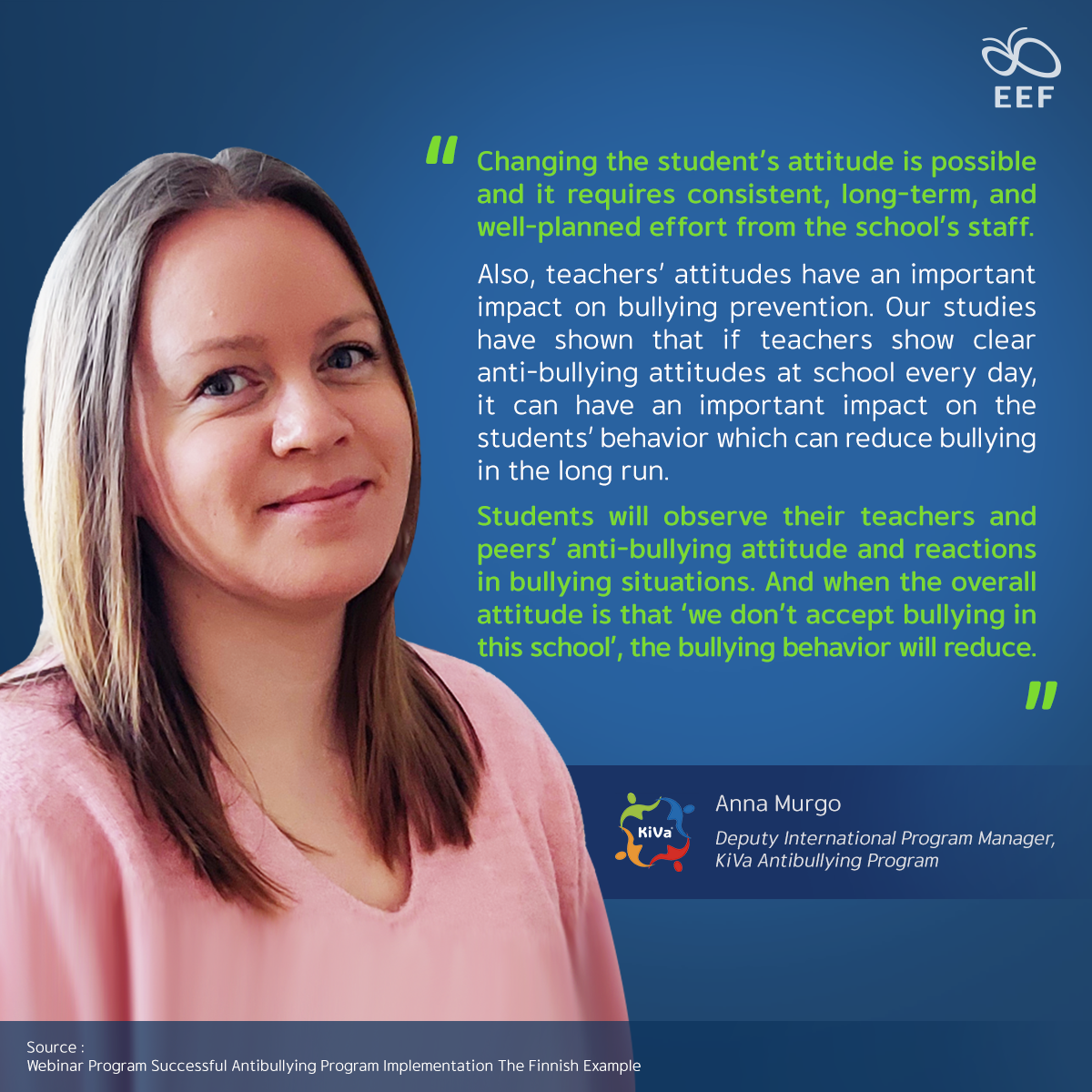
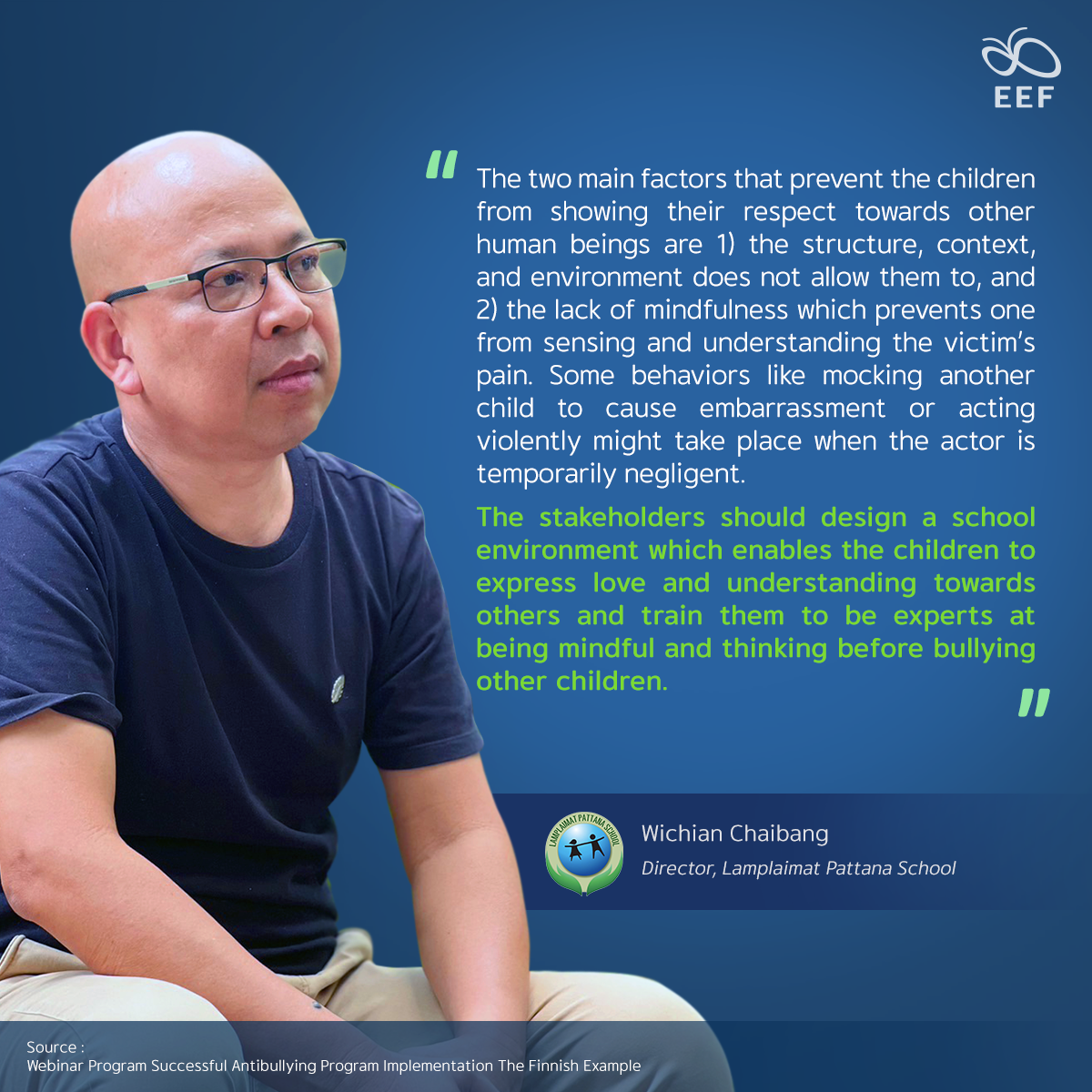
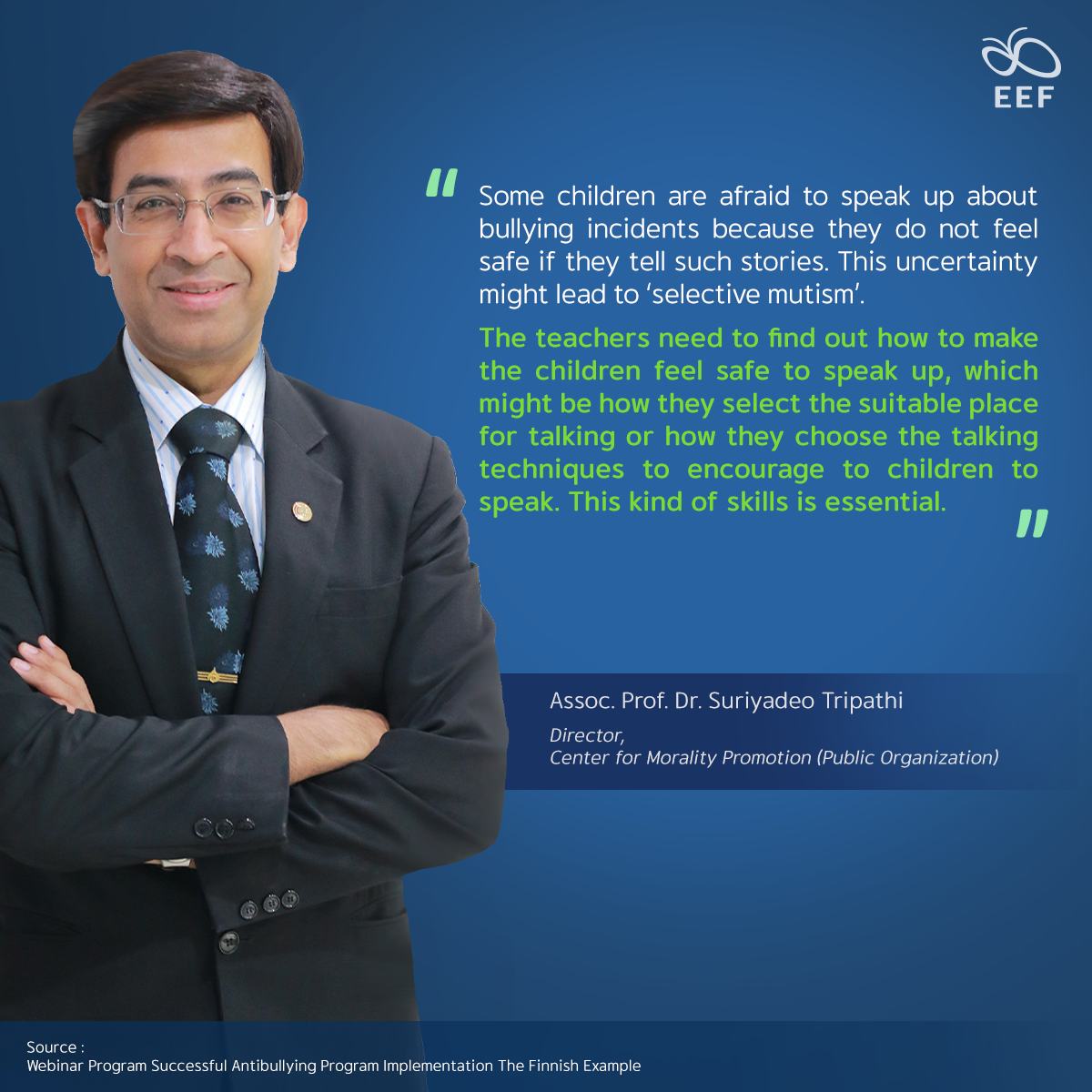
Souce:
EEF Inter-Forums, BULLY KiVa Antibullying Program.https://fb.watch/lqhfqw4ylb
Record of the Forum: https://drive.google.com/file/d/1GgcGdURGq-hb6IIQ8SbcGp2MKmaff6Ml/view

